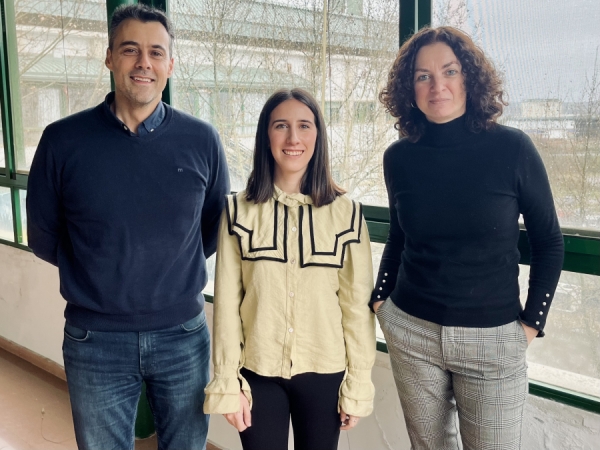As part of the European AgrEcoMed project, a team from the University of Córdoba is exploring alternatives to the conventional agricultural business model in order to integrate agroecological practices—such as crop rotation, cover crops, and avoiding the use of chemical fertilizers—into Mediterranean farms. Their work also includes identifying the barriers limiting the implementation of these practices.
Researchers Laura Sánchez Mata and Melania Salazar Ordóñez, along with Macario Rodríguez Entrena and Julio Berbel from the WEARE-EAARN research group (Water, Environmental and Agricultural Resources Economics) at UCO, are conducting this study, focusing on horticultural, subtropical, and olive crops in the Axarquía region of Málaga. The project is centered on assessing the economic sustainability of the agroecological transition. To this end, they have analyzed the current business models for these farms, their level of agroecological transition, and the barriers to that transition, so that they can propose, according to all that information, the most profitable and efficient agroecological business model possible.
Europe needs to improve the sustainability of its agri-food supply chain. That’s why, since 2020, the European Union has been promoting strategies to encourage the sector’s transition to a more sustainable model, such as the "Farm to Fork" initiative under the European Green Deal.
Agroecological practices offer a path to gradually redesign agroecosystems and reconnect them with local consumers to facilitate this transition. These practices help prevent erosion, enhance biodiversity, reduce deforestation, and increase soil carbon capture capacity.
A key limitation of organic farming is its typically lower yields compared to conventional agriculture. Agroecology, however, allows for the application of sustainable practices at varying levels of intensity, which, with the right business model, can still be profitable in the long term.
Agriculture, in general, is vulnerable to climate-related events such as droughts and heavy rains—risks that are increasing due to climate change. In addition, conventional farms often rely on a single crop, which leaves limited flexibility in times of crisis.
Agroecological models can be more resilient to such crises. For example, cover crops and mulching protect soil from erosion and mitigate drought effects. These models also often diversify income sources and crops, making them more resilient overall.
"The use of chemicals or poor practices contributes to erosion," explains Laura Sánchez, who is participating in the UCO research alongside Julio Berbel, Macario Rodríguez, and Melania Salazar. "Taking care of your farm today ensures its productivity in the long term," the expert adds.
Diversity, Agritourism, and Agroecological Cultivation: The Most Effective Strategies
The goal of this business model is to maximize the benefits of agroecological practices themselves.
Given that one of the main concern of farmers is market volatility—which affects the cost of inputs like fertilizer—, recycling livestock manure as crop fertilizer (circular economy) or avoiding chemical fertilizers (ecological farming) can help mitigate this issue.
Additionally, crop diversification—central to agroecological production—makes it easier to adapt to crises and market fluctuations.
Practices such as crop rotation, deficit irrigation, cover crops, and mulching promote biodiversity, conserve water, and prevent erosion.
Another strategy to boost farm profitability is to combine farming with other activities, such as agritourism or on-site processing of agricultural products, thereby creating multiple income streams. Diversifying sales channels or selling directly to consumers can also help cut costs and reduce environmental impact.
Despite all these benefits, the main challenge with these practices appears to be getting started. The transition can be difficult without specialized training, and adapting equipment can be expensive.
“If farming is their only economic activity,” Sánchez notes, “they place a much greater value on production and the farm’s economic performance,” she explains. In such cases, financial support to cover the initial transition costs could be key.
The project, funded by Horizon Europe and PRIMA, is now entering its final phase. In the coming months, results will be validated with the farmers involved in the project, and a report with recommendations will be developed. This will support the future design of strategies and public policies to promote these business models in the Mediterranean region.


